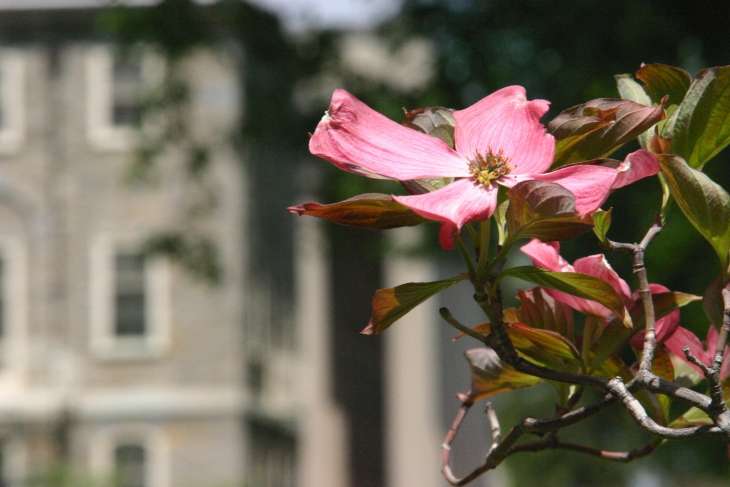High pollen levels hitting allergy sufferers hard

Ah, springtime. Sunny days, fresh breezes and everything is in bloom – including seasonal allergies.
This year's harsh winter staved off an early arrival of springtime allergies, but the wet weather that has gardens looking lush and green also means tree pollen – especially oak – has made things worse than usual for those who suffer.
Dr. Randy Young, director of pulmonology, allergy and critical care medicine at Penn State Hershey Medical Center, says allergy season typically starts within a few weeks of the last frost. In central Pennsylvania, that usually means mid-April.
"The tree growth is really exuberant this year, which is wonderful to look at, but it's wreaking havoc," he says.
So, how do you know if you have a cold or allergies?
If congestion and other allergy-type symptoms come with fever and body aches, but disappear after a few days, it's likely nothing more than a viral infection. If it lasts longer – and others in your family suffer from allergies – it's more likely seasonal allergies.
Some people are genetically more inclined to suffer from allergies than others, but environment also seems to play a role.
"There are a lot of exciting theories about why some people get allergies and others don't," Young said. "Some say it depends how much dust and dirt you were exposed to as a kid. Those who live in a rural or farm environment – or with pets – seem to be much less likely to have allergies."
It's not a very scientific explanation, but the theory is that when the body's immune system is preoccupied protecting against more threatening infections, it doesn't have time or energy to fret over silly annoyances such as allergens.
"We live in such hyper-clean environments now that our immune system has time on its hands to do other things," Young said.
There are even some who believe that giving allergy sufferers a limited, mild, worm infection may redirect the immune system to focus on eliminating the parasites and alleviate allergy symptoms.
Young says if that seems a bit much, those who get the springtime sniffles can try less invasive means first.
Avoiding triggers is the key.
In the spring, that might mean not going outdoors on days when the pollen count is high, using air conditioning to cool indoors rather than opening windows, and making sure the filter on the unit is clean. Showering and changing clothes after outdoor activities or yard work can also help control symptoms, since the pollen that accumulates on cars and outdoor furniture also collects on clothing and can hitch a ride indoors that way.
Over-the-counter antihistamines such as Zyrtec, Allegra and Claritin do the job for many, while others add nasal sprays or eye drops to their allergy-season treatment routine. Those who still can't find relief may need to have an allergy evaluation and consider a regimen of allergy shots.
After Memorial Day, the tree pollen will give way to grass allergies before a summer lull that precedes the late-summer and early-fall weed and mold allergies.

















